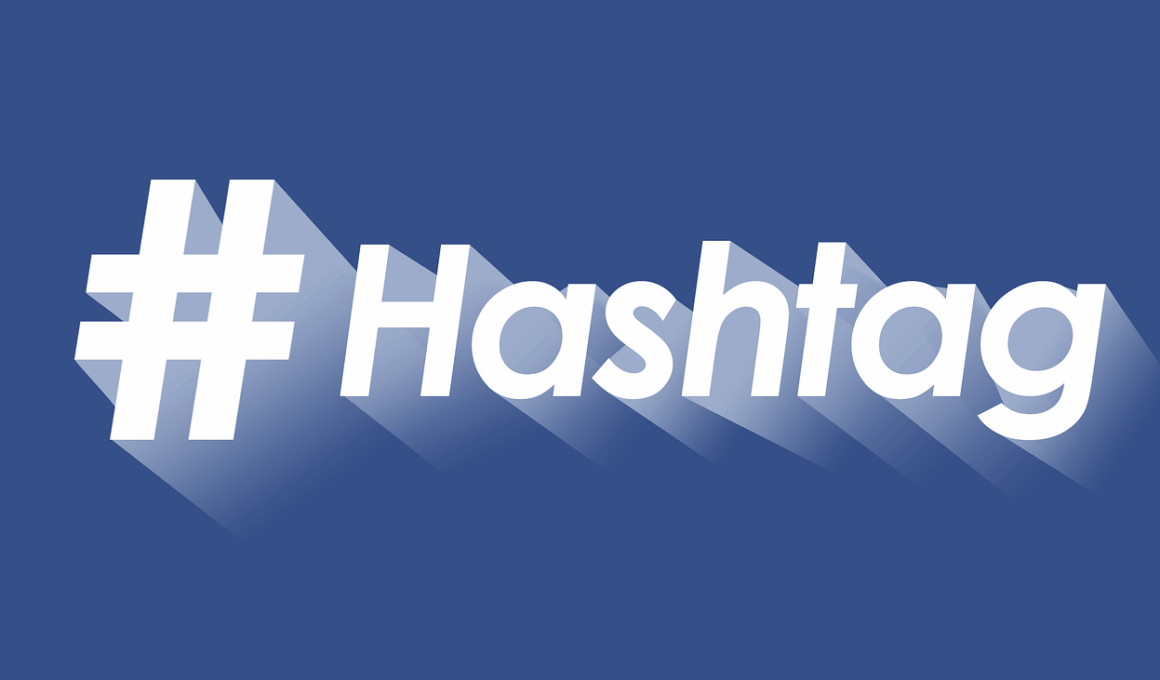Introduction to Hashtags and Privacy Challenges
Hashtags have become an essential component of social media strategies, aiding in content discoverability and user engagement. However, as hashtag usage grows, concerns about privacy and data security become paramount. The dichotomy of enhancing visibility while safeguarding personal information has emerged. Social media platforms often utilize hashtags to aggregate content categorically, allowing marketers to target audiences effectively. This strategy, however, raises questions regarding how user data generated through hashtags is stored, processed, and potentially shared with third parties. Users engaging with hashtags might not realize that their activity is being monitored. Data mined from hashtag interactions can be quite revealing, exposing user interests and behaviors. Moreover, as privacy laws evolve, platforms must navigate compliance while attempting to maximize their analytical capacity. Therefore, finding a balance between effective hashtag strategies and user privacy will be crucial. Understanding this balance is essential for brands looking to build relationships with consumers that are both forward-thinking and respectful. The future of hashtag strategies will hinge upon maintaining transparency as a core principle, ensuring that privacy considerations remain a priority for both users and marketers alike.
The Evolution of Hashtags
Initially, hashtags served primarily as a method to categorize content, making it easier for users to find relevant material amidst overwhelming amounts of data on platforms like Twitter and Instagram. Their origins date back to 2007 when Chris Messina suggested using the pound sign for grouping topics. Since then, hashtags have rapidly transformed from a mere organizational tool to a powerful marketing strategy. In the digital landscape, brands leverage trending hashtags to engage with wider audiences, tailor their messages, and encourage community discussions. However, the effectiveness of this strategy confronts privacy challenges, especially in an era marked by heightened awareness regarding data usage. As hashtags can expose a user’s interests and associations, individuals increasingly scrutinize how their online personas are curated and shared. This scrutiny compels brands to reflect on ethical considerations surrounding their hashtag campaigns. Planning and analyzing user behavior without infringing privacy creates a complex balancing act for marketers. Moreover, the dynamic nature of social media means hashtags may evolve rapidly, causing brands to adapt swiftly while simultaneously respecting their audience’s privacy and preferences.
As hashtags become central to social engagement, ensuring that they are employed with privacy considerations is vital for brands. The transparency surrounding data collection practices demands careful attention. When users participate in discussions fueled by hashtags, they may be unaware of how their data is utilized. Marketers should strive to foster an ethical approach that respects user privacy. By clearly communicating how hashtag data is used, brands can strengthen trust among their target audience. Building a reputation for ethical marketing practices not only enhances consumer confidence but also draws in a loyal customer base. There is also a growing demand for users to control their personal data when engaging in social media marketing environments. Incorporating privacy-centric features can distinguish brands from competitors in a rapidly evolving digital space. Furthermore, with the introduction of privacy regulations like GDPR and CCPA, brands must comply proactively with legal requirements to avoid substantial penalties. Ultimately, prioritizing user privacy while harnessing the potential of hashtags can set precedent for the future of marketing strategies and ensure sustainable growth for businesses in the digital landscape.
Additionally, as hashtag strategies evolve, the emergence of new platforms and technologies will impact both their usage and privacy implications. The rise of decentralized social networks challenges traditional models of data management, shifting focus toward privacy-enhancing solutions. Users are seeking platforms that offer not only engagement potential but also allow them to maintain control over their personal information. This trend indicates a collective move towards greater empowerment in curating online identities through privacy-conscious means. Brands aiming to thrive in the future need to adapt strategies aligned with these evolving values. Implementing privacy-friendly hashtag campaigns can foster positive perceptions in the eyes of consumers. Furthermore, advancements in artificial intelligence and machine learning may further complicate the landscape, enabling more refined targeting while increasing risks surrounding data misuse. Brands must cultivate strategies underpinned by principles of trust, responsibility, and compliance, creating an environment where consumers feel secure to engage. Achieving this delicate balance requires innovative thinking, preparation, and a commitment to respecting user privacy while utilizing hashtags strategically for growth and engagement.
Moreover, the dialogue surrounding hashtags has expanded to encompass issues of representation and inclusivity, further necessitating a focus on privacy. In leveraging hashtags to engage audiences, brands must ensure that their approaches do not inadvertently lead to exclusion or harassment. Social media users are increasingly advocating for safer and better representation online. Consequently, marketers must participate actively in discussions surrounding respect, diversity, and vulnerability in digital spaces. Brands need to engage responsibly, adhering to ethical guidelines that promote inclusivity while safeguarding user privacy. Consumers desire authentic interactions, which demand that brands carefully select hashtags that elevate marginalized voices and foster dialogue. The combination of advocacy rooted in ethical hashtag usage and commitment to transparency can establish a progressive and conscious marketing identity. Thus, the intersection of hashtags, privacy, and inclusivity can create a more engaging and secure online experience. Brands navigating these discussions can set themselves apart as industry leaders committed to leveraging social media responsibly, ensuring that hashtag strategies are both impactful and ethically sound. Balancing these elements will be paramount in cultivating lasting relationships with diverse audiences.
In addition, examining the role of analytics in hashtag strategies reveals the importance of maintaining user privacy. Businesses have relied heavily on metrics derived from hashtag interactions to inform marketing decisions. However, they must approach this data with sensitivity to privacy implications. Companies should deploy advanced analytics methods while ensuring that users remain anonymous and their personally identifiable information is protected. Leveraging aggregated data allows brands to extract powerful insights without compromising individuals’ privacy. Marketers can harness performance metrics, such as engagement rates, impressions, and reach, gleaned from hashtag campaigns, while explicitly limiting visibility of user data. Adaptability will remain essential as regulatory landscapes continue to evolve. Utilizing tools that prioritize compliance with privacy regulations can mitigate risks associated with data management. Brands that integrate data privacy measures into their analytics processes can cultivate a sense of security among users and increase their credibility. Moving forward, the confluence of analytics and privacy in hashtag strategies can set the groundwork for more informed and responsible campaigns, empowering brands to understand their audiences without sacrificing the sanctity of personal information.
Lastly, as we look towards the future of hashtag strategies, the ongoing dialogue around privacy will shape best practices in the industry. Organizations that proactively engage with stakeholders on privacy matters can establish themselves as advocates for ethical marketing. Such efforts lead to improved consumer perceptions and commitment from audiences, resulting in longstanding partnerships. Additionally, educational initiatives for both marketers and users can enhance awareness surrounding data privacy and responsible hashtag practices. By disseminating information about how hashtags work, brands can better instill confidence among users engaging with their content. Collaboratively developing better public understanding of challenges related to privacy may embolden users to express their opinions and demands about data protection. This collaboration will produce an environment fostering accountability for marketers as they pursue hashtag strategies. Moving forward, the brands that navigate these complex discussions thoughtfully will likely enjoy sustained success. In conclusion, embracing user privacy, inclusivity, and evolving technologies provides a pathway for brands aiming to harness the full potential of hashtags, ensuring a more responsible and engaging platform for all stakeholders involved.






